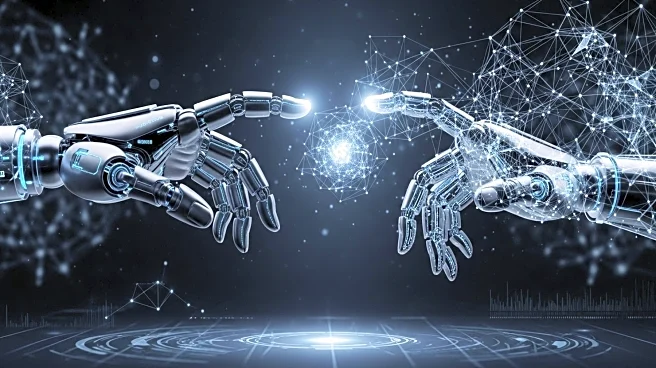What's Happening?
Austin Grossman, co-writer of the original Deus Ex game, has expressed discomfort with Elon Musk's admiration for the game, suggesting Musk misinterprets its themes. Grossman believes Musk sees himself as the game's protagonist, JC Denton, despite being more aligned with the game's portrayal of power and surveillance. Grossman has voiced concerns about Musk's involvement in technology and social media, particularly through Neuralink and the social network X. He fears Musk's worldview aligns with the game's dystopian elements, which critique the misuse of technology and power.
Why It's Important?
Grossman's comments highlight the ongoing debate about the influence of technology moguls like Musk on society and culture. The critique underscores concerns about the ethical implications of Musk's ventures, such as Neuralink, which aim to integrate technology with human biology. This discussion is significant as it reflects broader societal anxieties about surveillance, control, and the role of powerful individuals in shaping technological futures. Grossman's perspective adds to the discourse on how cultural products like video games can be interpreted and misinterpreted by influential figures.
What's Next?
The conversation around Musk's interpretation of Deus Ex may prompt further analysis of how technology leaders perceive and influence cultural narratives. It could lead to more public scrutiny of Musk's projects and their alignment with dystopian themes. Additionally, Grossman's comments may inspire other creators to speak out about the impact of their work on public figures and societal issues.
Beyond the Headlines
Grossman's critique raises questions about the responsibility of creators in shaping narratives that can be co-opted by powerful individuals. It also touches on the cultural impact of video games as a medium for exploring complex themes like power and identity. The discussion may encourage deeper exploration of how games influence and reflect societal values and concerns.









